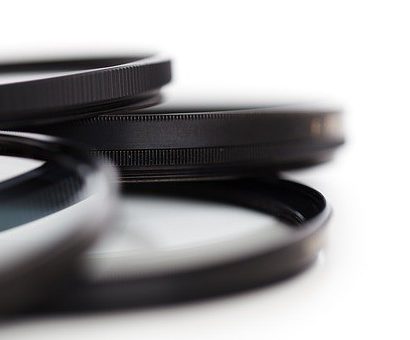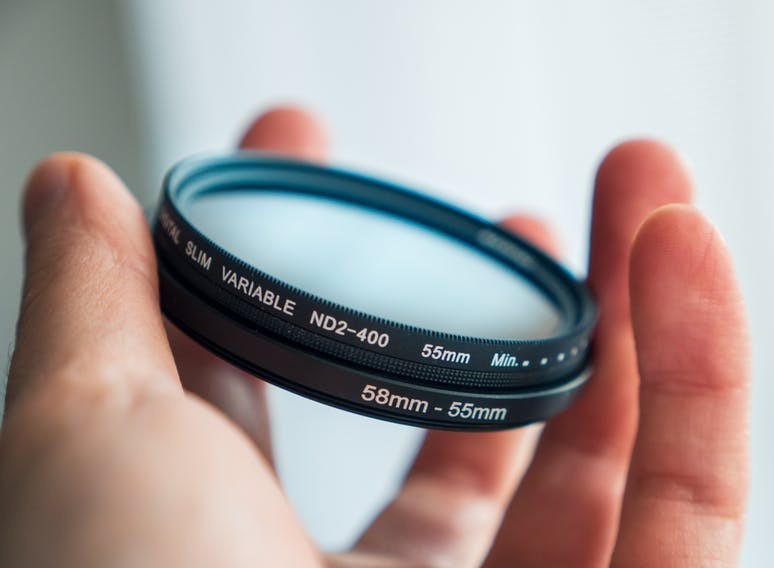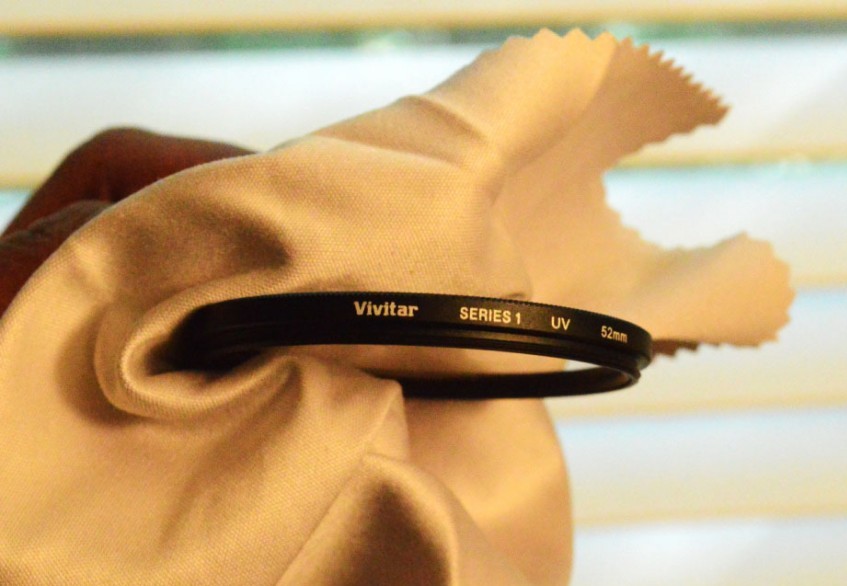UV Filters: The Great Debate

Hey everyone! It’s Isaiah, and I’m back with another interesting topic on my Photography journey: UV Filters. What exactly are they? Are these extra add-ons really necessary when it comes to taking better photos? Or protecting the glass surface of my expensive lens?
What is UV Light?
UV, or Ultraviolet light, is basically light coming in from the sun that falls into a specific wavelength from 10nm (nanometers) to 400 nm. On the electromagnetic spectrum, that would fall right in between visible light and xrays. Ultraviolet Light is the wavelength between 4 nm and 400 nm( or nanometers) on the electromagnetic spectrum. Near UV is in the range of 400-300nm, while far UV falls in the range of 300-200nm, and extreme UV would be anything below 200nm. Though the Sun emits strong UV light, only the near UV light reaches the Earth’s surface thanks to the ozone layer in our atmosphere. It absorbs all the wavelengths below 290 nm.

Ultraviolet light is literally ‘beyond violet light’ and the visible spectrum that our human eyes can actually see directly. This is why we need detectors that are sensitive enough to UV to convert it in to a form that we can see.
Ultraviolet Photography is the photographic process that intentionally records images by using the light found in the UV spectrum only, which would fall between that 10nm to 400nm wavelength. In this particular case, this serves a medical and scientific purpose, as images taken here can assist doctors and physicians in detecting certain types of injuries, or even certain skin disorders.
But when it comes to photographers taking images for other purposes, do we really need to be concerned with the amount of UV light that comes through our lenses?
The Role of UV Filters
There was a point in time when UV filters were extremely important, in the early days when they were used for filming. The film was initially divided into different layers for red, blue and green, with the blue light being the most sensitive to UV light. But now that were in the modern era of digital cameras that have internal filters that can actually block the UV light and infrared light.

One of the main purposes of UV filters is to reduce the amount of ultraviolet rays (UV) that enters the lens, which helps to preserve the image quality. Although I’ve noticed some photographers arguing that UV filters actually degrade the quality of the images, so far, I’ve yet to notice any particular side effects or loss of quality with my UV filter.
Extra Protection for your Lens
A second plausible reason for UV filters would be the additional protection on your expensive lens. Now I haven’t had any accidents with my digital camera, as I’m always careful with when taking it out of the case. I keep the camera strap around my neck, watch my every step, and every position I take with my legs or my tripod. But anything could happen at anytime, no matter how careful I am.
Other photographers argue that they’ve actually damaged their lens with the UV filter screwed on the front when dropping it hard and fast enough against a solid surface. And I can believe that if you dropped from a good height, or with enough force, the UV filter wouldn’t help much. Yet, I’m certain that in a realistic situation, accidentally dropping it from a few feet from my chest height, or perhaps tripping over a rock falling forward, is still a shorter distance.
Also, I’m not claiming to have lighting fast, cat-like reflexes, but I’m certain that my reaction would be fast enough to hinder the fall. Personally – having the UV filter on there at least put me in a better mindset of having this extra layer, which is easier to replace rather than the glass on my expensive lens.
Additional Purposes
Another reason why I’m in favor of using a UV filter would be that it helps to keep the glass on my lens clean. Before I even purchased the filter, I was already seeing tiny debris and smudges on my lens, and purchased a microfiber cloth to clean it off. That tells me that things like dust, dirt, fingerprints and other tiny particles can get on there over time.

And the way I see it, it would be much easier for me to remove a thin, inexpensive UV filter and clean it rather than my more expensive lens. What if there’s a smudge or greasy film that’s difficult for me to wipe off? Or what if I accidentally scratch or scrape it?
My Takeaway
There’s two sides to this. On one hand, I can ask myself, why should I invest all of this money into an expensive lens only to place a tiny piece of glass in front of it? But on the other hand, wouldn’t I want to do do whatever I can to protect this expensive camera lens, even if it’s as small as a circular UV filter?
I personally believe this is an inexpensive, yet effective way to protect my expensive camera lens. Also, I haven’t seen any significant loss in the quality of pictures that I’m taking whether the filter is on or off. Others have claimed otherwise.
What are your thoughts on UV filters?


3 Comments
Rusty Parrish
Hi Isaiah,
Great article, where should I start… very in-depth. Who knew there was so much consideration with in choosing the many different choices for lenses.
Thanks for your in-depth review. Very informative.
Rusty
Nate Stone
Hey Issiah,
Great article, I’m going to be spending the next 4 – 6 months in Thailand, I’m no photographer but as part of my project I’m going to need to take a fair few photos in order to document the different places that I’m visiting. The photos do need to be of a t least fairly decent quality as there is going to be a commercial element to this, would you suggest I invest in a UV filter for this?
Isaiah Burch
Hey Nate,
Thanks for the feedback. It doesn’t hurt – it at least will add some extra protection on your lens, and it’s very inexpensive, for a few dollars.I would do it. Thanks again!